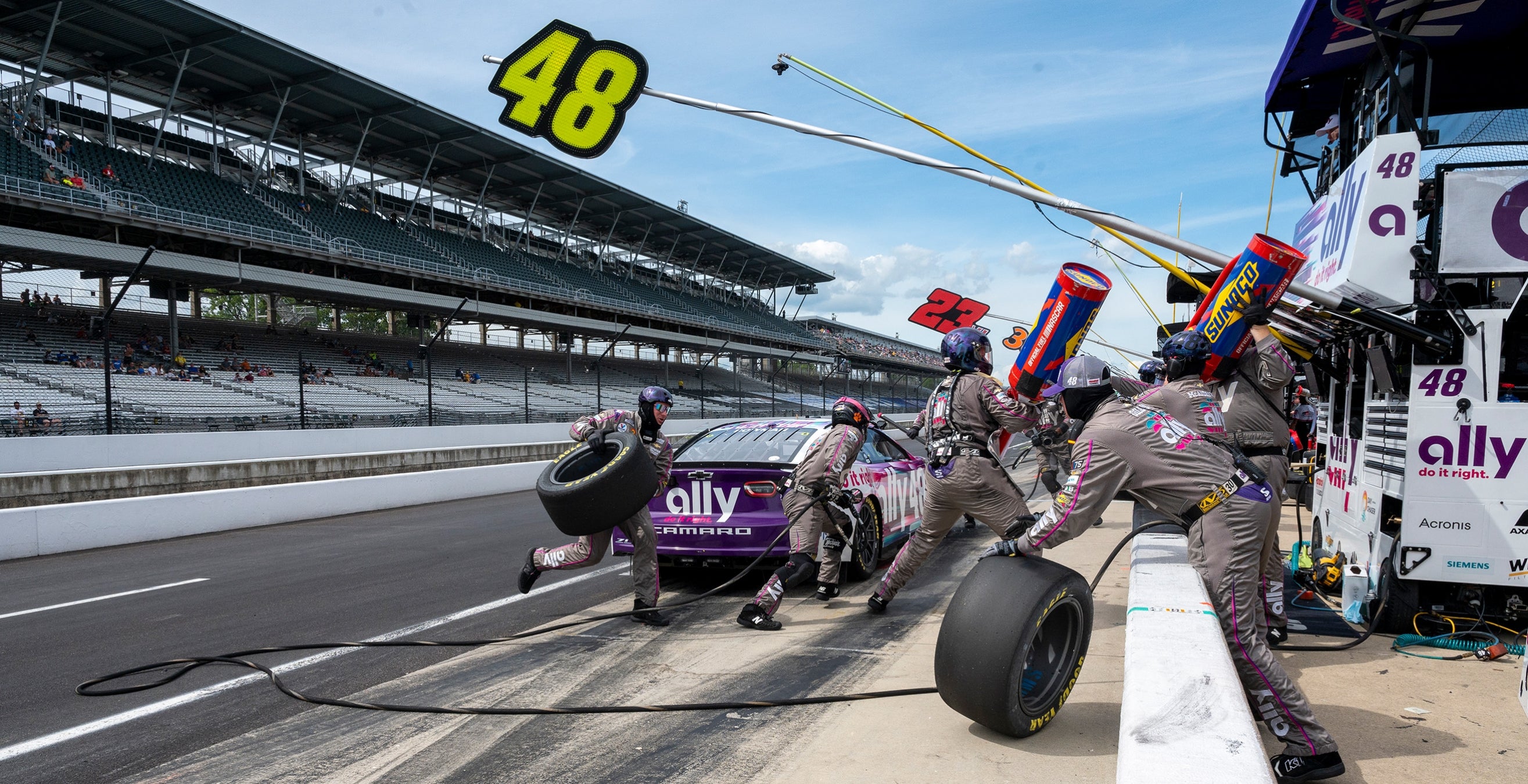Donnie Tasser had just finished up an overnight shift at UPS when he got the call.
“Do you want to work for NASCAR?”
Tasser (A&S ’13), a former student athlete on Pitt’s wrestling team, didn’t have to ponder the question for long. He was six months out of college, freelancing as a sportswriter for local publications by day and loading trucks by night. Neither job provided him much joy, and he missed being part of a team. So, he traveled to Charlotte, North Carolina, for a pit crew tryout with Hendrick Motorsports. He’s been working there ever since.
Over the years, he’s moved steadily through the NASCAR ranks — from the Truck Series to the Xfinity Series to the Cup Series — and won the 2021 Cup Series championship with the No. 5 team. Today, he’s a front tire changer for Hendrick’s No. 48 car, piloted by Alex Bowman.
And he isn’t the only graduate to leave Pitt for the pit. His old Panther wrestling teammate and roommate Matt Wilps (A&S ’13) attended the same tryout and, after bouncing around multiple teams, now works as a tire carrier for Front Row Motorsports and the No. 38 car driven by Todd Gilliland.
It’s not unusual to find former college athletes at NASCAR. Athletes have the strength, endurance and speed required to work in the pit, where tires weigh 200 pounds, temperatures routinely reach 110 degrees and the difference between victory and defeat can come down to hundredths of a second.
“The pit crew is super physical,” Wilps says, “so any training that we did in wrestling really does translate.”
But Tasser, who didn’t follow motor sports before joining NASCAR, says the job is about more than just brute physicality. It’s also about teamwork and precision. His pit crew is expected to change tires in a tight space in less than nine seconds. And that is only one piece of all the moving parts that make up a NASCAR victory.
“Nobody grows up playing pit crew — you have to learn that fine technique,” he says. “I have a huge appreciation for the sport that I did not have before; how much engineering, how much preparation, how much attention to detail goes into it.”
Both men are also intimately familiar with how much travel accompanies a career in racing. They are on the road all but two weekends between February and November. Tasser and his wife had to schedule a Cesarean section to ensure he’d be home for the birth of his second child, and his brothers are attempting to schedule their weddings around the NASCAR calendar so Tasser can attend.
Still, Tasser and Wilps feel lucky to have found their niche.
“I didn't want to sit behind a desk,” Wilps says. “It was definitely an easier transition from sports coming into NASCAR. It's more of an environment — a competitive environment — that I'm comfortable with.”
“I honestly don’t know what else I’d be doing,” Tasser says. “You trade the less optimal parts of the job for the obvious benefits — chasing championships.”
This story was published on Sept. 18, 2023.

